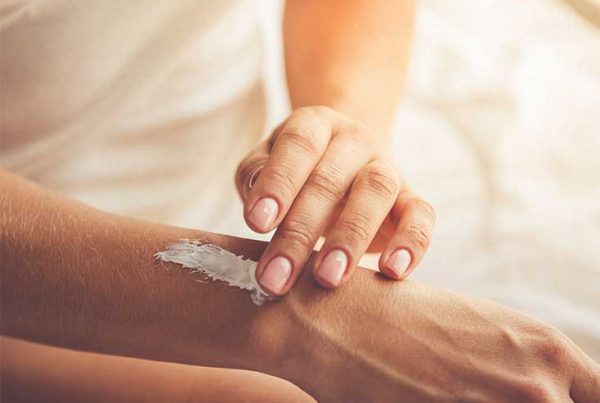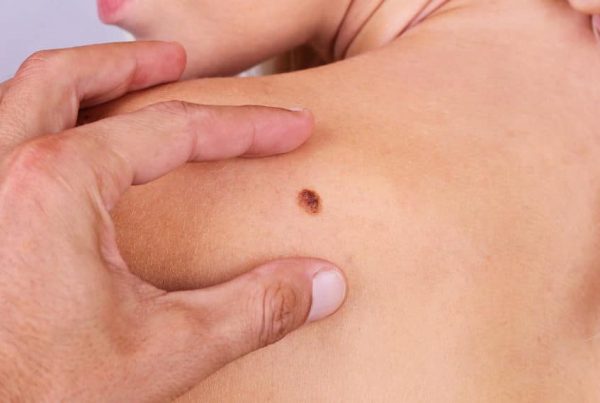
Skin Series – All About Eczema
Skin is the largest organ in the body, and it works as a barrier to keep the body safe. When that barrier is broken, eczema can occur. Let’s look at what eczema is, how it occurs and steps you can take to avoid an eczema flareup.
What is Eczema?
Eczema is also known as atopic dermatitis. It’s an irritating, and sometimes painful skin condition that occurs when the skins barrier becomes compromised. The skin becomes red, dry and itchy, and over time rough patches might develop. The most common areas to have an eczema flare-up include the creases of the elbows, behind the knees, across the ankles and sometimes on the face, ears and neck. There are many triggers that might cause eczema to flare up, and with careful observation most people are able to identify them to help manage their condition.
Who is Affected by Eczema?
Eczema can occur in people of any age, but it is most common in children. Around one in five children under 2 years old will have the condition. It can also occur in older children and adults, but for most people it improves with age. Even adult eczema normally goes away by middle age, although a small number of people might need to manage the condition for the rest of their lives.
What Causes Eczema?
We don’t really know why some people get eczema. Eczema seems to go along with other issues like allergies, hayfever and asthma, which appears to show that genetics influence the risk of someone developing eczema.
When the skin barrier is damaged, it allows moisture to evaporate and lets irritants and allergens past the skin. In turn, the skin releases chemicals that make the skin itchy, and scratching makes the skin release even more. That creates an irritating and painful cycle that makes the problem worse.
Known irritants that can trigger eczema include:
- Dry skin
- Infections
- Chlorine from swimming pools
- Sand (especially in sandpits)
- Scratching
- Sitting on grass
- Chemical irritants like soap and perfumes
- Changes in temperature
- Pollen sensitivity
If a person has allergies, then coming into contact with allergens can cause eczema to occur. Constant exposure to water, soap, grease, food or chemicals can also damage the protective barrier function of the skin, which often causes eczema.
Sometimes because an allergic reaction to food and an eczema flare-up can happen around the same time, people assume that the food has caused the eczema, causing them to remove the food from their diet. In some cases, removing foods can help with eczema management but it should only be attempted under the supervision of a doctor. More often, food issues are unrelated to eczema flare-ups and don’t need to be removed from the diet.
What Treatments are Available?
Unfortunately, eczema can’t be cured. However, it can be treated and managed. Staying away from allergens can help avoid flare-ups, and keeping the skin moisturised and protected can help stop the skin barrier from breaking. People with eczema need to work together with their doctor to identify triggers for their eczema, and work on minimising flare-ups.
People can help manage their own symptoms by:
- Keeping baths and showers lukewarm
- Moisturising every day, preferably within a few minutes of bathing
- Wearing soft, natural fabrics
- Using mild cleansers, preferably non-soap
- Gently drying skin after bathing by patting or air-drying
- Avoiding sudden changes of temperature
- Using a humidifier when the weather is dry
Your doctor might prescribe:
- Corticosteroid creams and ointments
- Systemic corticosteroids
- Antibiotics, antivirals and antifungals if a skin infection has occurred
- Barrier repair moisturisers
- Phototherapy – UV A or B light can be used to treat moderate dermatitis.
Managing eczema is an ongoing battle. Even adults who have outgrown childhood eczema can find their skin is easily irritated. Once an area of skin has healed, it still needs ongoing care to ensure the barrier stays intact. People who struggle with eczema need to be proactive, and work with their doctor to identify their triggers, alleviate their symptoms and prevent further breakouts. A cure isn’t currently available, but good skin management can free eczema sufferers from irritation and discomfort.
ASCIA Guide to eczema (atopic dermatitis) management:
Want more information?
Call (03) 5611 3365 to speak to a friendly patient concierge
or book an appointment here


